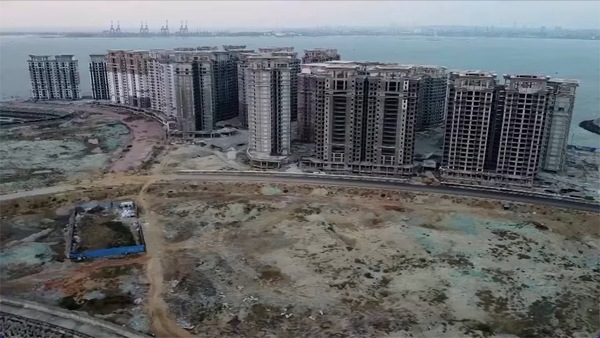y Andrea Widburg at americanthinker.com
Last week, a court in Hong Kong ordered that Evergrande, China’s massive property developer, must be liquidated. Real estate accounts for about one-quarter of China’s GDP, and Evergrande isn’t the only troubled part of the Chinese real estate sector. While I’d always like to see China constrained, not only is a collapsing China dangerous, but the real estate collapse also reminds us of what’s happening domestically.
Business Insider reported on Evergrande’s liquidation, which has long been expected and which will be carried out in an orderly fashion. The assets are valued at $245 billion (which I suspect is inflated), while the company’s debts are $300 billion. As with an American bankruptcy, secured creditors get first dibs on any money from the liquidation, with the people carrying out the liquidation then getting their fees. The dregs will be for unsecured creditors and shareholders. Offshore investors will be lucky to see pennies on the dollar.
What’s more interesting about the report by Huileng Tan is what’s going on with the rest of China’s real estate market. That’s because Evergrande isn’t the only company hurting. While restructuring is possible, writes Tan,
At large, Evergrande’s fate reads like a warning sign to other companies in China, Margulies said.
That’s because the court order to liquidate Evergrande signals that problems of this size in China “will likely end up in some form of liquidation, whether onshore or offshore,” Margulies said.
China’s economy has been struggling to recover since it started lifting pandemic-related restrictions more than a year ago. It’s facing significant headwinds from a property crisis, deflationary pressure, and a demographic crisis.
China, the world’s second-largest economy, grew 5.2% in 2023. While that was better than the COVID-battered performance of 3% in 2022, it’s still one of the economy’s worst showings in three decades.
Market sentiment over China’s economy is so bad that the country’s stock markets sold down massively in the first weeks of January as investors made a dash for the door.
Notably, the stock market sell-off came before Evergrande’s liquidation order.
Currently, China’s economy is a Potemkin Village. It looks very grand, but behind the scenes, it’s hollow. Its real estate market is a shambles; its Belt and Road initiative, which seemed to be the perfect example of economic colonization, is fading; and its population is in demographic freefall.

